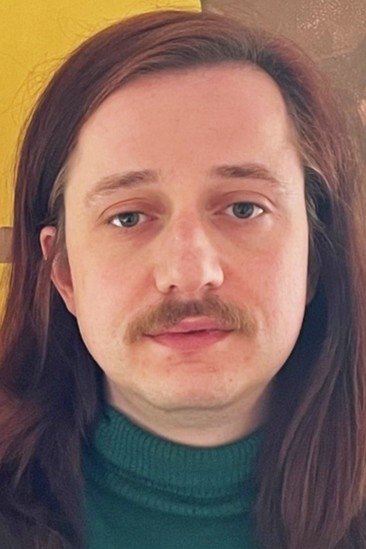
Philipp Gufler
Birthday: Born in 1989-06-23 in Augsburg, Germany
Deathday: Alive
Philipp Gufler was born in Augsburg and studied at the Academy of Fine Arts in Munich. He attended artist residencies at De Ateliers, Amsterdam, Netherlands (2015-2017), Skowhegan School of Painting & Sculpture, Maine, USA (2019) and Delfina Foundation, London, UK (2021), among others. He lives in Amsterdam and Munich. He is an active member of the self-organized Forum Queeres Archiv München. Philipp Gufler "explores matters of queer imagery, questioning the Western historiography, in which heterosexuality and a binary gender system define the social norm". He spans various media in his practice, including silkscreen prints on fabric and mirrors, artist books, performances and video installations. His artist book and video installation Projection on the Crisis (Gauweilereein in Munich "takes a kaleidoscopic and retrospective look at the early days of the AIDS crisis in Germany". In the ongoing series of quilts, Philipp Gufler refers to artists, writers, magazines and lost queer spaces. The screen-printed fabrics have been exhibited at the Württembergischer Kunstverein, Stuttgart and at Munich Documentation Centre for the History of National Socialism among other venues. In 2020, he produced a short film and a zine about the singer and entertainer Lana Kaiser.
TV Credits
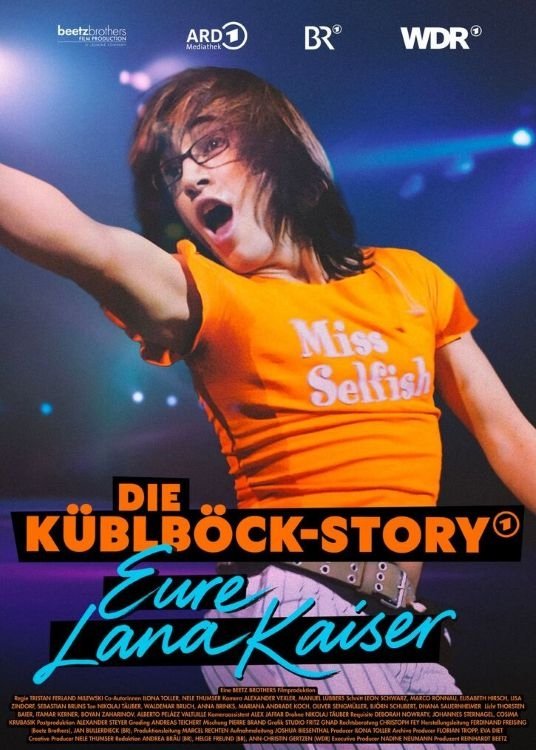
Die Küblböck-Story - Eure Lana Kaiser
Character: Self - Artist
The touching life story of Lana Kaiser, who became famous as Daniel Küblböck on the casting show Deutschland sucht den Superstar. The coming-of-age story of a teenager from Lower Bavaria who wanted to become a star and did, reinventing themselves again and again throughout their life. And who, shortly before their disappearance from a cruise ship, made themselves visible as a trans woman under the self-chosen name Lana Kaiser....
Movie Credits
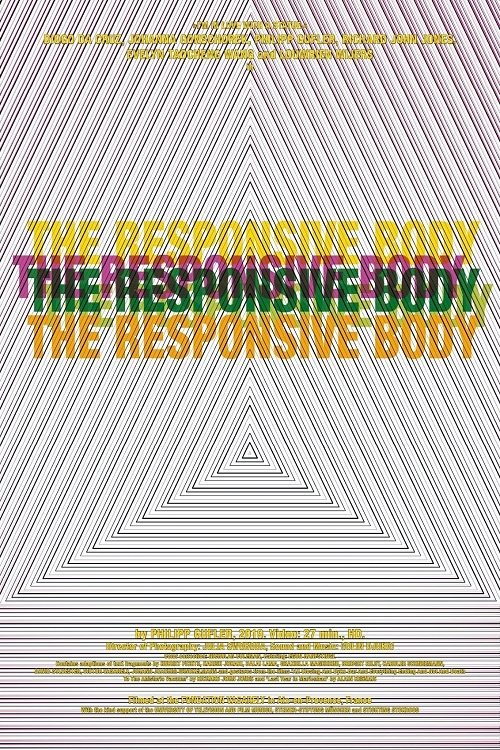
The Responsive Body
Character:
In Gufler’s video installation The Responsive Body (2019), questions, directed at heteronormative, masculine self-conceptions of an art movement, arise. Gufler channelled texts by the British Op Art artist Bridget Riley into the film and thus provides her with space in an egocentric museum....
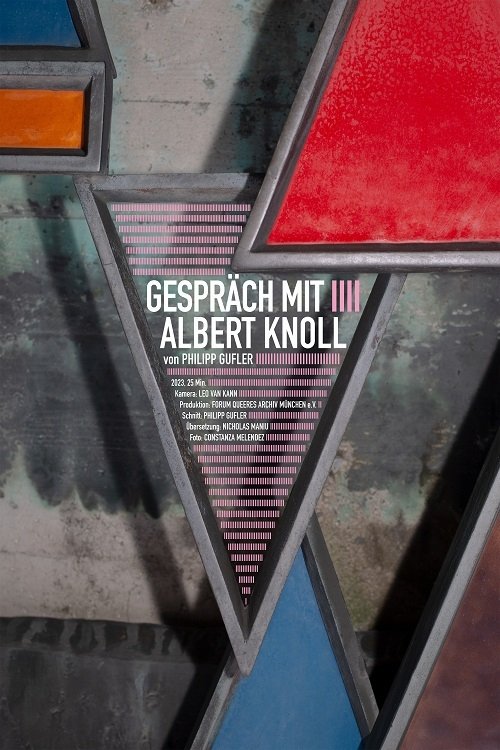
Conversation with Albert Knoll
Character:
"For some time now I wanted to shoot a short film about Albert Knoll's tireless self-organized historical work and ask him why he has dedicated a large part of his life to commemorating the crimes against humanity committed during the Nazi dictatorship and what this archival work has done to him. A special focus is on oral history, as I am interested in how, as a conversational partner, one preserves their knowledge and experiences in a certain way after the death of the contemporary witnesses. ...
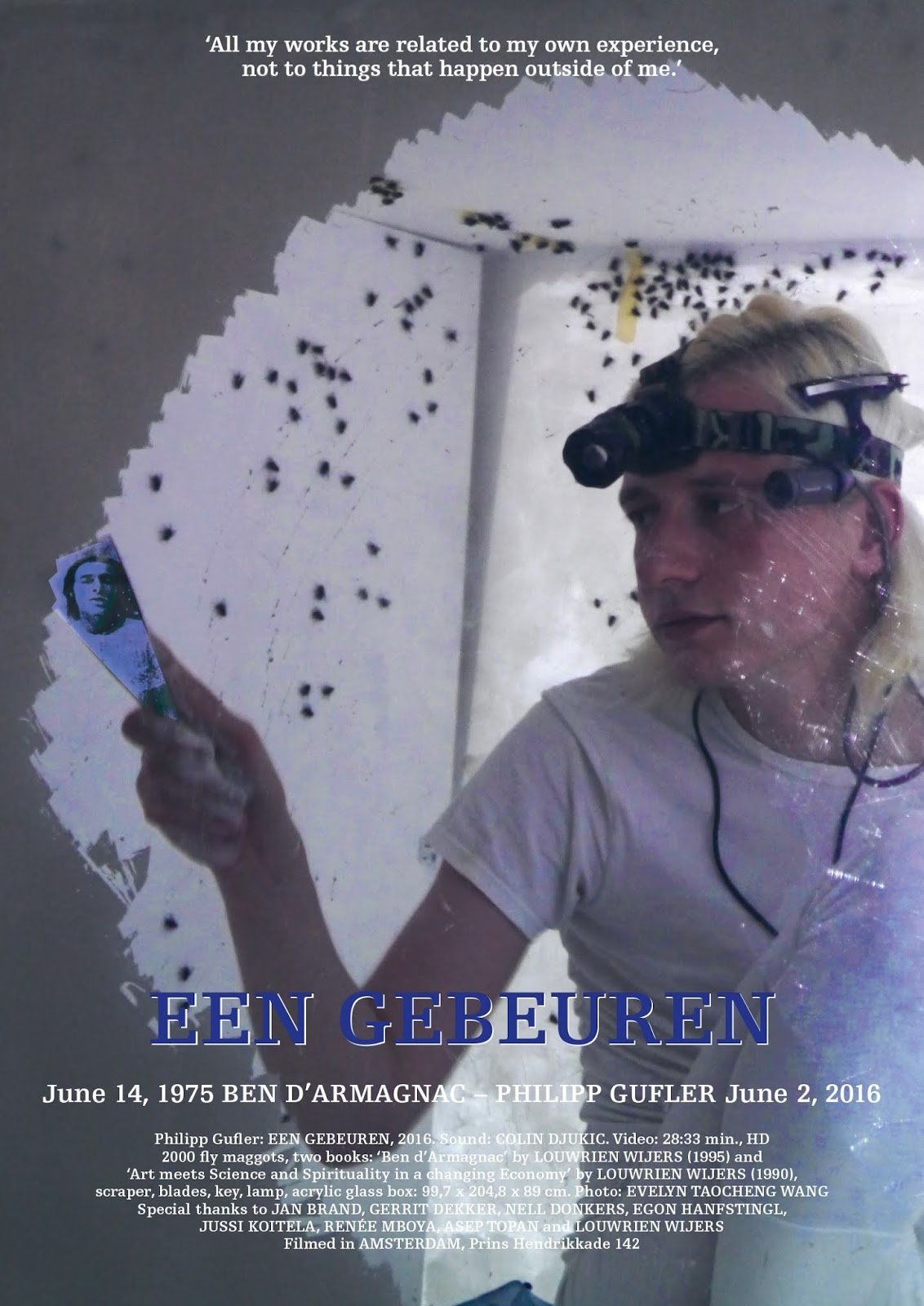
Een Gebeuren
Character:
The video installation „Een gebeuren“ is based on Ben d’Armagnac’s performance of the same name, which took place in Amsterdam on 14th June 1975. D’Armagnac occupied a glass cube with the dimensions of about 2x1x1 metres, painted white from the inside, together with about 2,000 freshly hatched flies; he began to scrape off the paint centimetre by centimetre in order to at least partially reveal the cube’s inside for the spectators. Gufler reconstructed d’Armagnac’s performance based on rudimenta...
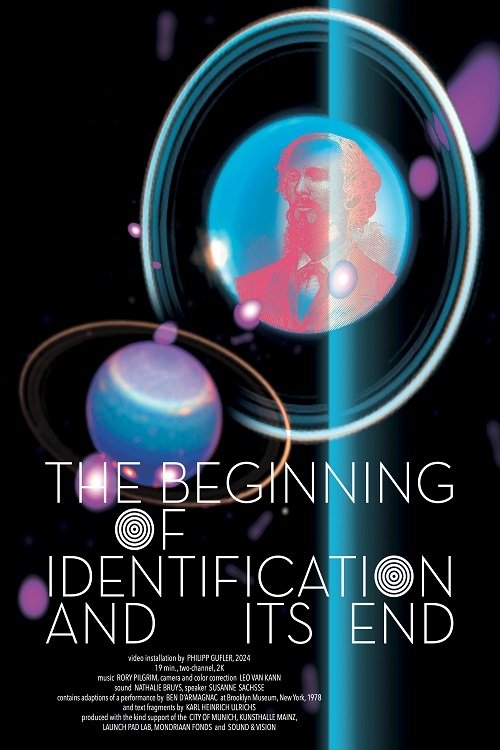
The Beginning of Identification, and its End
Character:
A video installation composed of a performance by the artist alongside archival film scenes centered on queer and transgender content. Presented across two projections, the film juxtaposes explicit and everyday expressions of non-normative sexuality: from people dancing freely at a lesbian party to Charlotte Charlaque's reverent smile, and the provocative speeches of far-right homosexual politicians. This collage is underscored by a rich soundtrack featuring recitations from Karl Heinrich Ulrich...
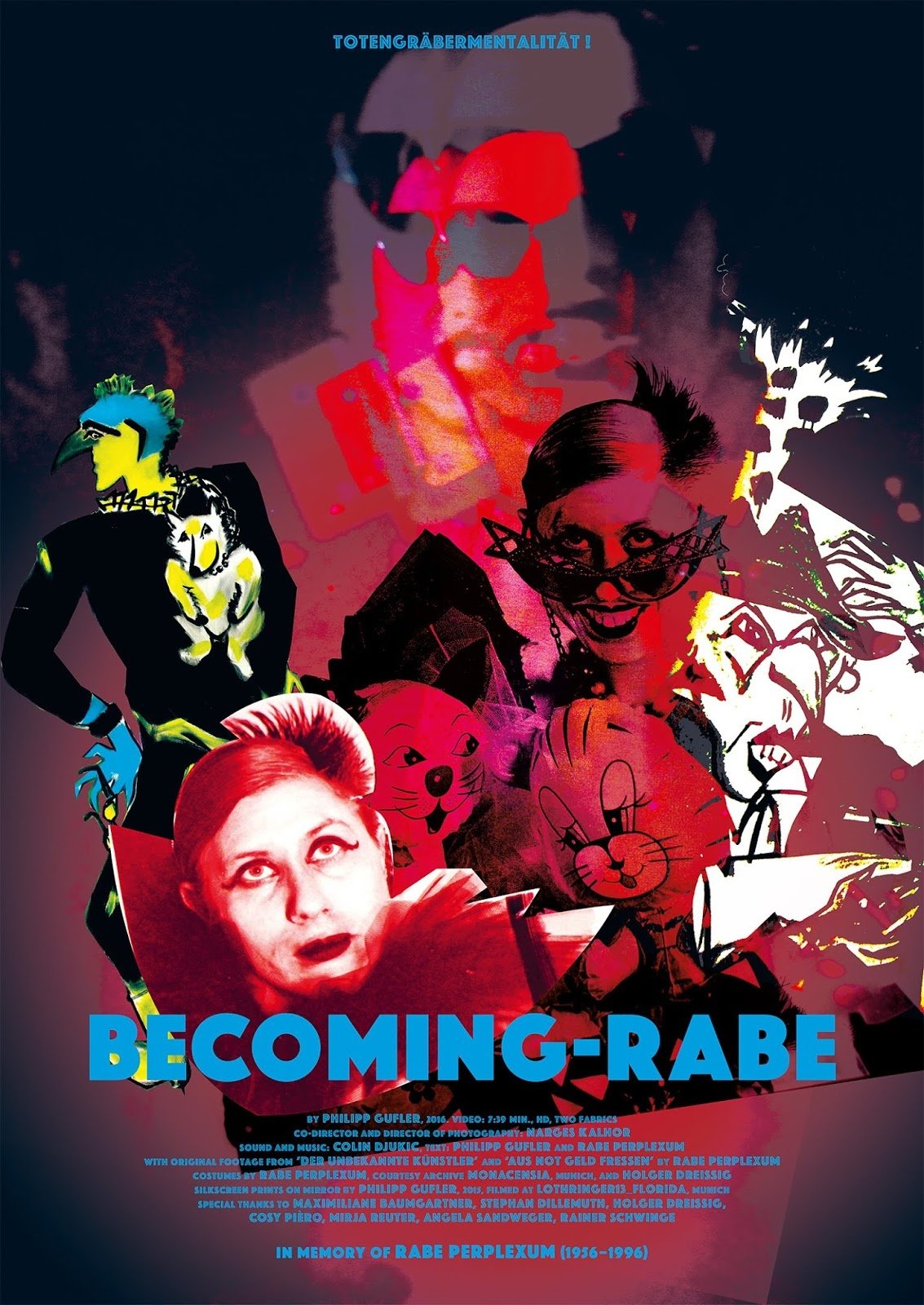
Becoming-Rabe
Character:
In his video installation Philipp Gufler is carrying on his engagement with political, artistic and social movements. In this work, Gufler focuses on the Munich based performance artist Rabe Perplexum, imitating or subverting the stylistic conventions characteristic of the 1980s. The video performance is derived from archival research and includes the original props and costumes used by Perplexum....
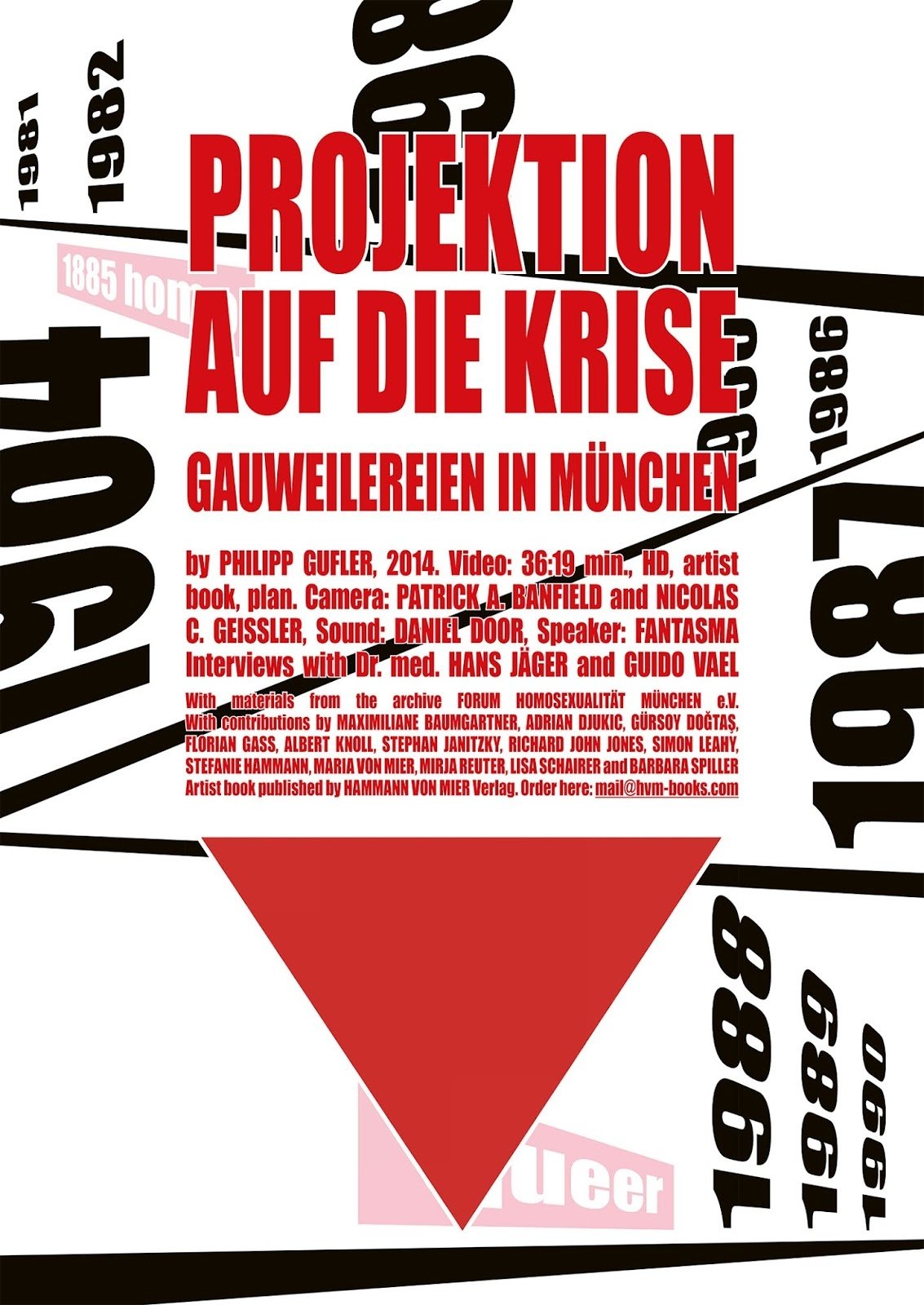
Projection on the Crisis (Gauweilereien in Munich)
Character:
Philipp Gufler's video installation "Projektion auf die Krise (Gauweilereien in Munich)" provides a kaleidoscopic look back at the beginnings of the AIDS crisis in Germany in the 1980s - a time when Munich's repressive policy against homosexuals reached its peak. The work brings together newspaper articles, posters, photos and press reports from this period. The historical material from the 1980s is commented on by artists....
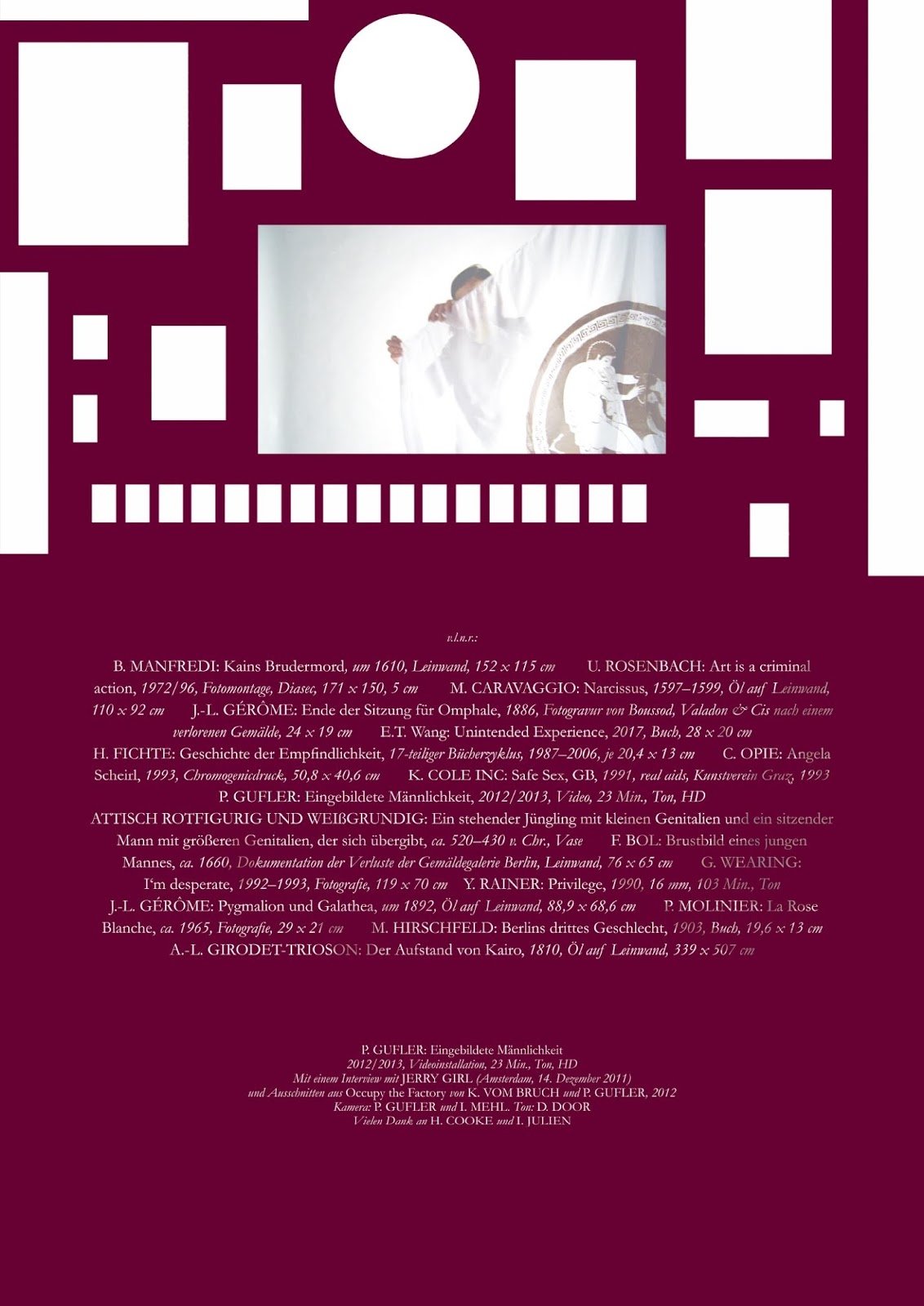
Eingebildete Männlichkeit
Character:
In this video installation Philipp Gufler grapples with different images and ideas of masculinity that art has produced over centuries: from vomiting, well-endowed Greeks, to the vain Narcissus, towards Andy Warhol’s gun shooting Elvis Presley. The selected images are printed on Lucent fabrics and behind those the artist coquets with masculine and feminine poses: smoking, applying makeup, knotting a tie etc. The reference to the painting “Pygmalion and Galathea” by Jean-Léon Gérôme can be regard...
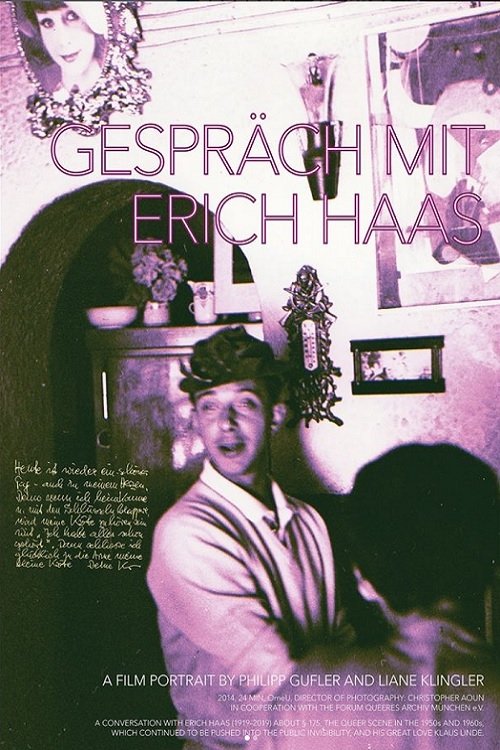
Conversation with Erich Haas
Character:
The film portrait recounts the social and political repression of homosexuals in post-war Germany based on an interview with 95-year-old Erich Haas, who worked as a receptionist in hotels in Munich after the Second World War....